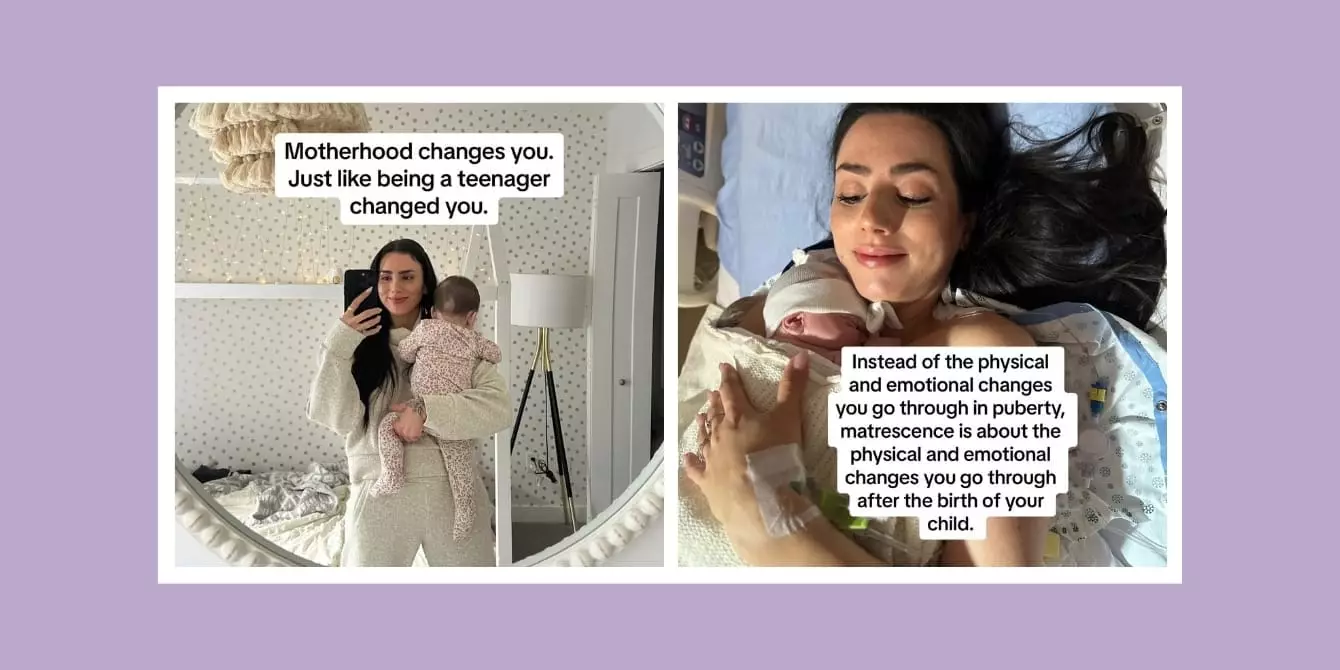The journey into motherhood is often described with a mixture of joy and confusion, encapsulating an experience similar to the tumultuous years of adolescence. This transformative phase, known as matrescence, mirrors the emotional and physical upheavals we previously faced as teenagers. Yet, it is rarely spoken about in the same breath as its adolescent counterpart. The term is gaining traction as more individuals explore the complex identity shifts new mothers undergo after childbirth. Understanding matrescence isn’t just beneficial; it’s imperative for mothers navigating this uncharted territory.
The Parallels Between Adolescence and Motherhood
Much like puberty, matrescence involves a cocktail of hormonal changes. New mothers frequently find their emotions fluctuating, transitioning from bliss to overwhelming anxiety within moments. The reality is that as our bodies undergo significant physical changes, our emotional landscapes witness a seismic shift too. This leads to a rediscovery of the self that can be disorienting yet enlightening. Just as teenagers grapple with self-identity during their formative years, new mothers find themselves re-evaluating who they are amidst the myriad responsibilities that accompany a newborn.
This identity crisis can create a vacuum where previous friendships and relationships either flourish or falter. The social dynamics shift as priorities inevitably change. It feels as if one is charting the murky waters of adolescence for the second time, albeit with the added complexity of caring for a child. While the joys of motherhood are substantial, so too are the challenges of navigating this unfamiliar terrain.
The Emotional Rollercoaster of Motherhood
A key aspect of matrescence is the emotional rollercoaster that often accompanies new motherhood. These emotions can include joy, fear, frustration, and fulfillment, sometimes all within the same day. It’s important to understand that this is not a sign of weakness or inadequacy; rather, it is a normal part of the experience. Acknowledging these feelings can be incredibly liberating. Many mothers report feeling overwhelmed and isolated, yet it is crucial for societal dialogue to normalize these experiences and destigmatize the struggles many face.
Mothers should be encouraged to voice their concerns and feelings without the fear of judgment. This discourse is essential in allowing other mothers going through similar struggles to feel validated and understood. Communities, whether through friendships, support groups, or online forums, can provide critical spaces for these discussions.
Finding Empowerment through Matrescence
The more we talk about matrescence, the more opportunities we create for empowerment. Instead of viewing this new life stage as merely a set of challenges, we can begin to embrace it as an incredible period of growth and discovery. Each emotional high and low contributes to personal development and self-awareness, shaping mothers into more nuanced individuals.
As this understanding of matrescence takes hold, it highlights the importance of compassion and support within maternal networks. By acknowledging the full spectrum of experiences tied to becoming a mother, we can reshape the narrative surrounding new motherhood to one of resilience, strength, and authenticity. Society must recognize that while motherhood might lead to discomfort and confusion, it also brings profound joy and connection.
In celebrating matrescence, we encourage an environment where mothers can thrive. By addressing this life stage with sensitivity and openness, we validate the transformative journey that spans far beyond physical changes, connecting us all through shared experiences of growth and rediscovery.

